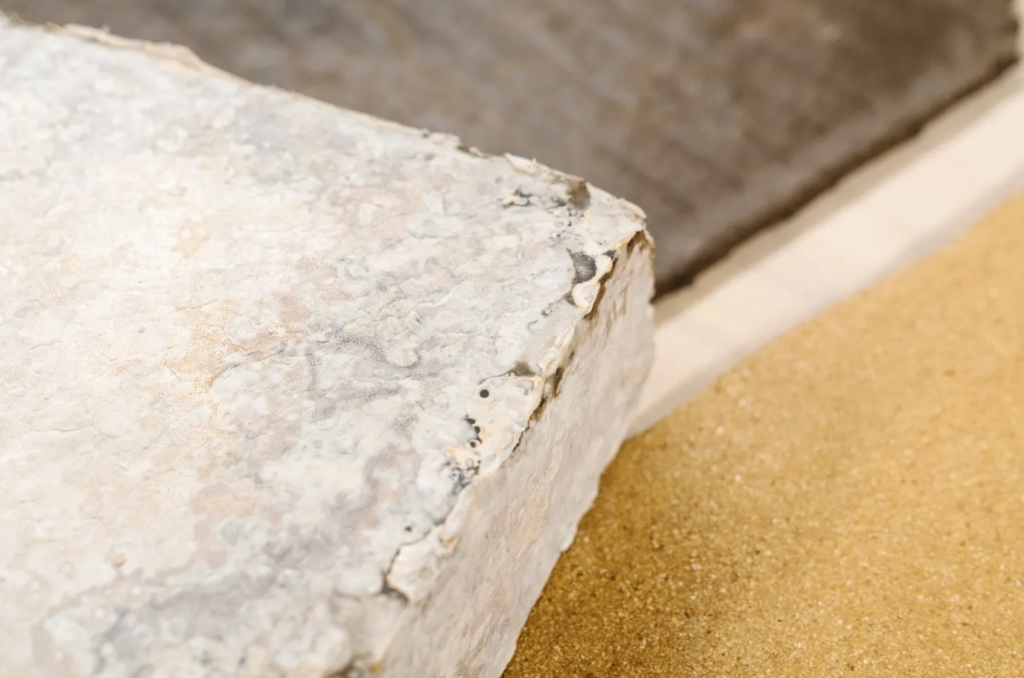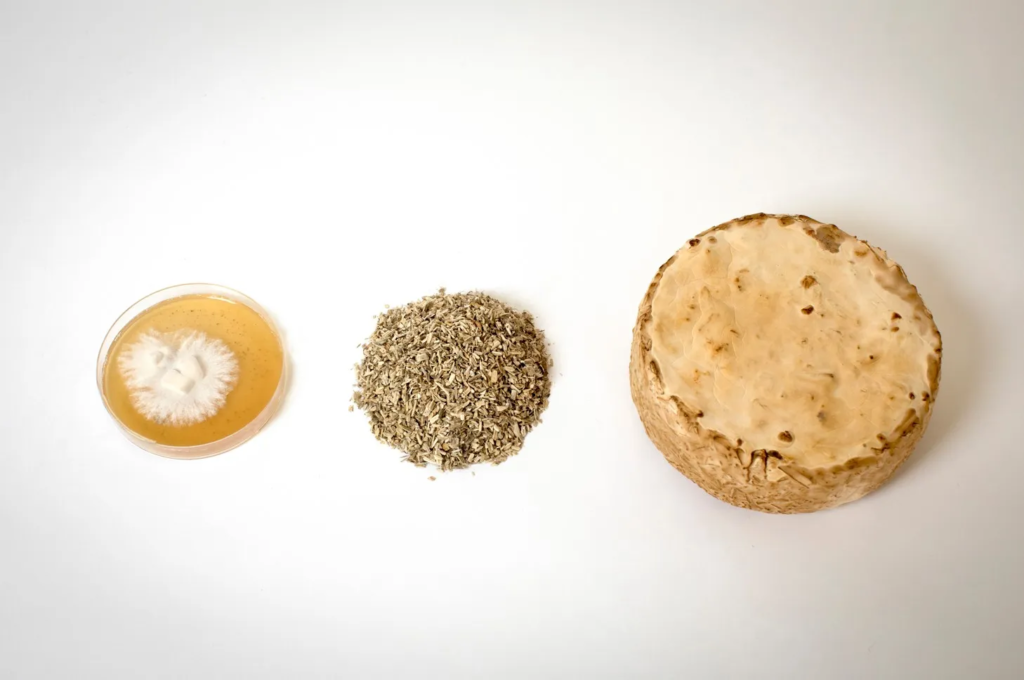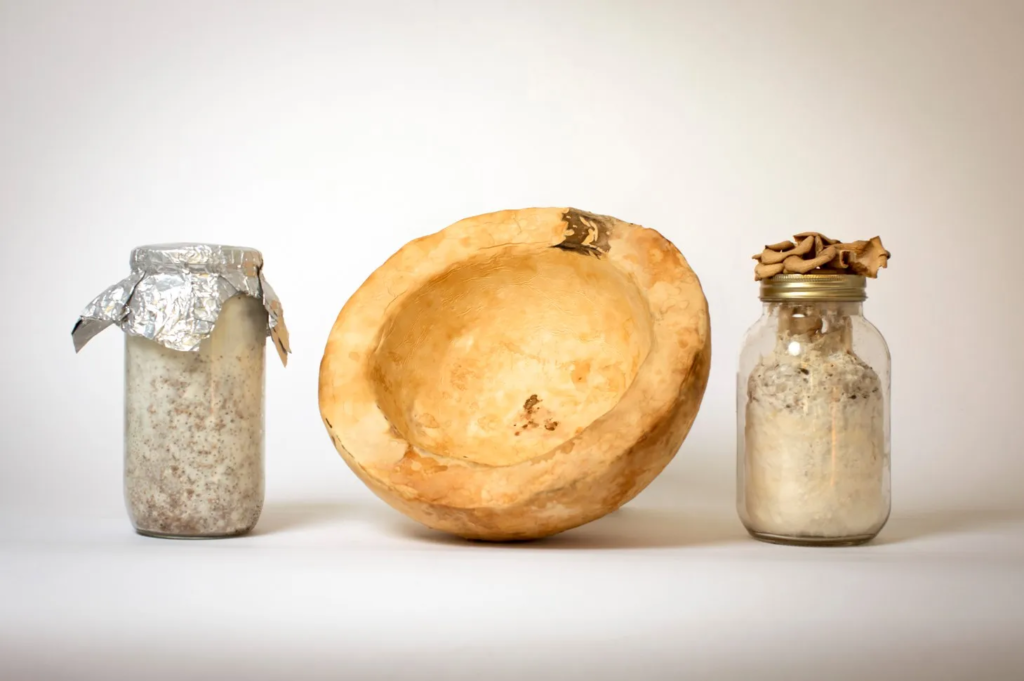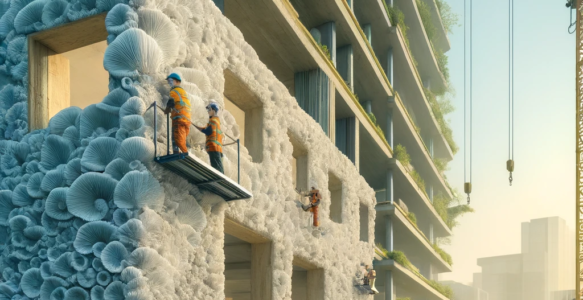
Credit: courtesy Biohm
Biohm is pioneering the use of mycelium, the root-like structures of fungi, to create building materials that could revolutionize the industry. Their primary innovation, mycelium-based insulation panels, is set for mass production in a new facility west of London. These panels are biodegradable and outperform traditional foam insulation by providing better thermal insulation, reduced flammability, and enhanced durability. Unlike conventional insulation, which can emit harmful volatile organic compounds (VOCs) and is often made from non-renewable resources, mycelium insulation is grown from agricultural byproducts. This makes it carbon-negative and free from toxic additives.
Ehab Sayed, the founder of Biohm, notes that the structure of mycelium is remarkably similar to engineered plastic insulation products but offers superior performance and environmental benefits. Once cultivated to the desired size, the mycelium is cured into strong, rigid panels used for insulation. This process avoids the resource depletion and heavy carbon footprint associated with traditional insulation materials, which often rely on fossil fuels and emit potent greenhouse gases.



Credit: Mycelium Insulation Panel | Insulation panels made from mycelium (circularmateriallibrary.org)
Material Properties and Benefits of Biohm’s Mycelium Insulation:
- Thermal Performance: Achieves thermal conductivity ratings as low as 0.03W/m.K, making it a highly effective insulator.
- Fire Safety: During combustion, mycelium releases significantly less heat and smoke compared to traditional materials, enhancing its safety profile.
- Acoustic Insulation: Excellent at reducing noise pollution, with an absorption rate of at least 75% at frequencies typical of road traffic noise.
- Indoor Air Quality: Breathable and wicks moisture effectively, emitting negligible amounts of VOCs, thereby achieving an A+ rating for indoor air quality.
- Durability and Installation: Maintains insulative properties throughout its lifecycle and is easy to install, adhering to industry standards without requiring additional training or safety equipment.
Beyond insulation, Biohm is developing other sustainable materials like plant-based concrete and a fiberboard alternative made from food waste. These innovations are part of Biohm’s broader vision to introduce a circular construction system that integrates various sustainable materials, promoting a holistic approach to building.
Biohm’s commitment to sustainability has earned it significant recognition, including the prestigious Index Award for social impact. As the company scales up its operations, with plans for new facilities in the UK and the Netherlands, it aims to make its products accessible for use in affordable housing, leveraging cost savings from using waste materials as feedstock.
Biohm’s initiatives exemplify the potential of biologically engineered solutions to lead the construction industry toward a more sustainable and environmentally friendly future, significantly reducing the sector’s impact on landfills and resource depletion.
For more detailed information on Biohm and their innovative work with mycelium, please visit the Biohm website.

